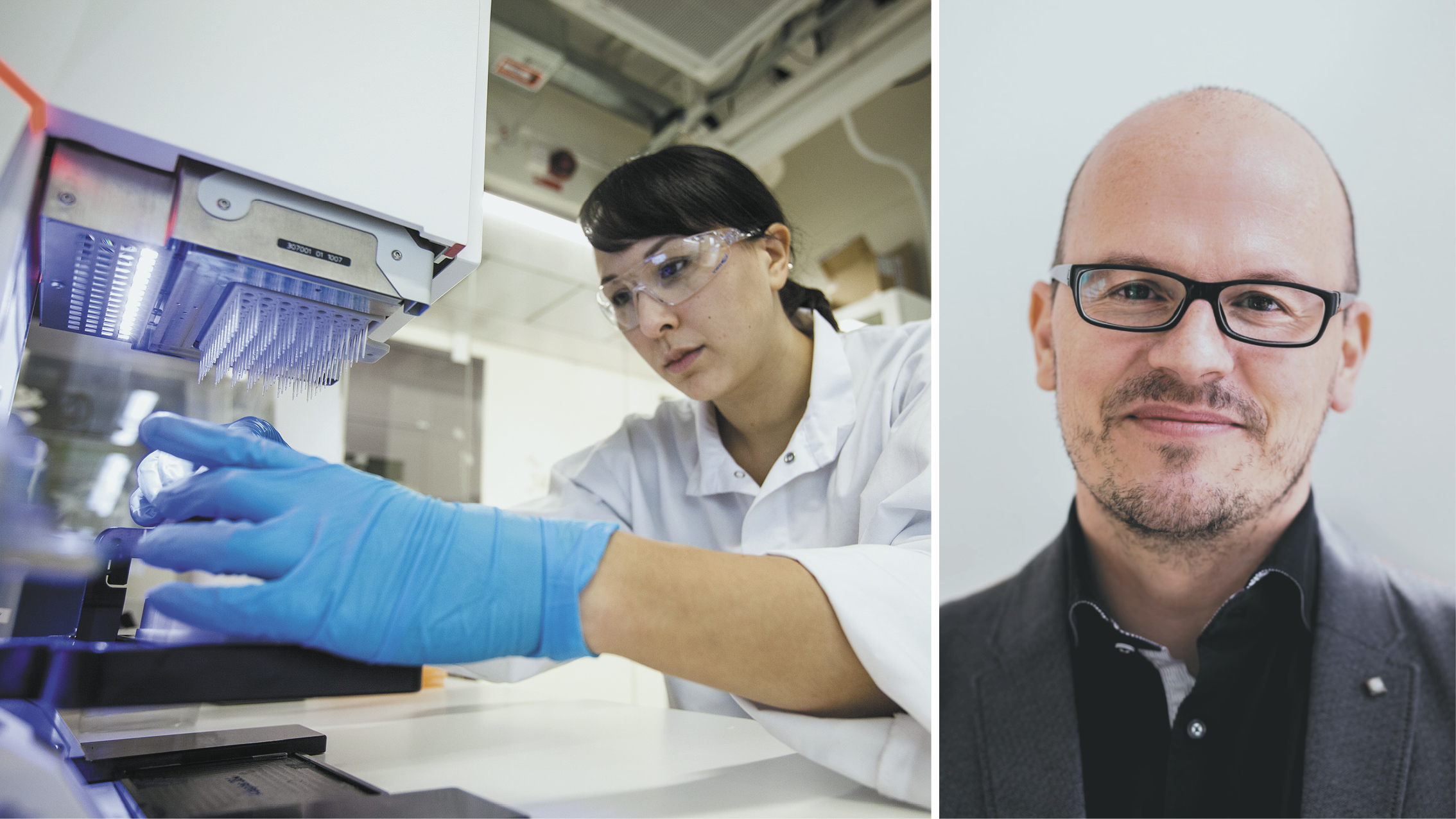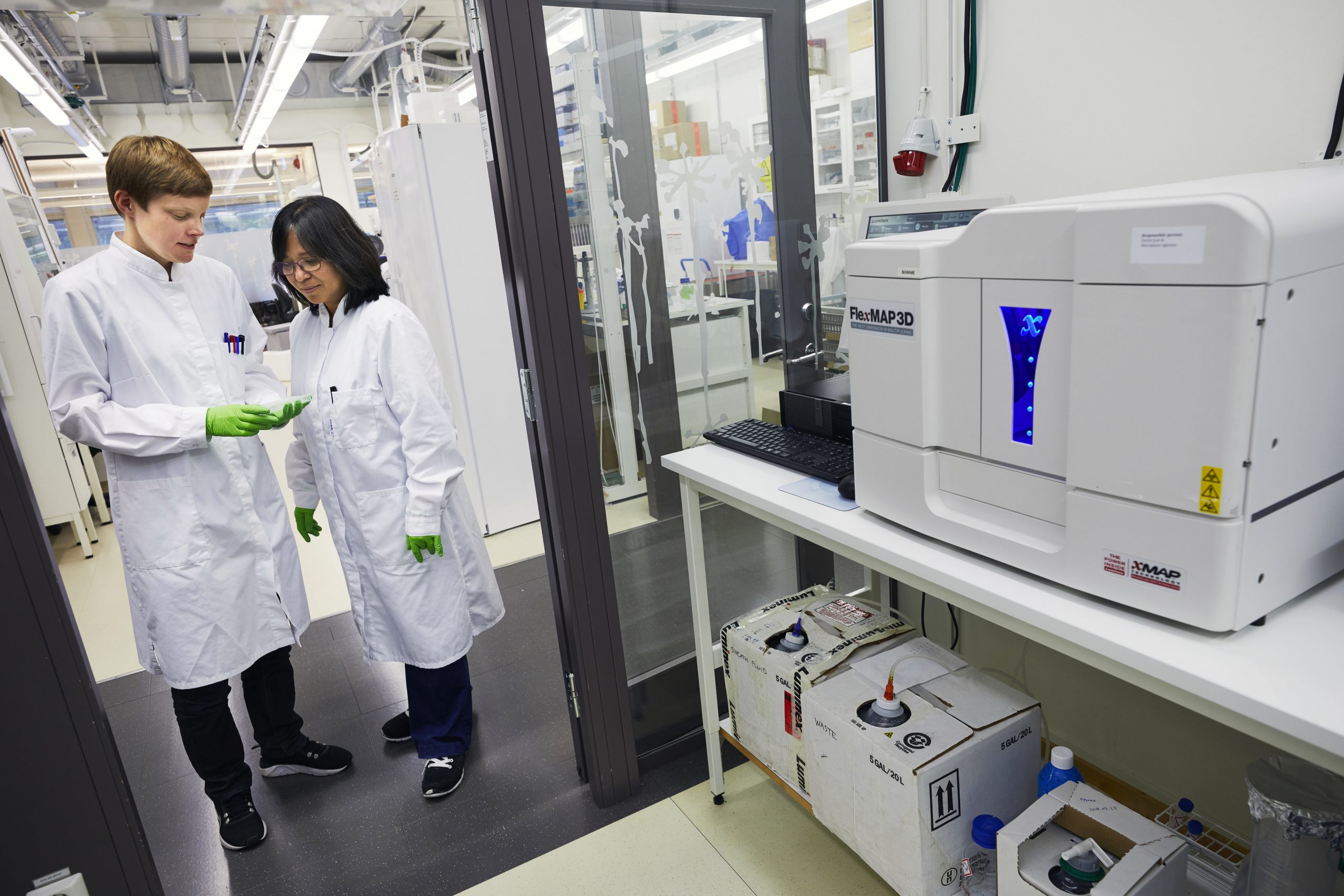1000 anonymous self-sampling kits for COVID-19 distributed among Stockholm residents

Photos: the SciLifeLab Plasma Profiling unit and Jochen Schwenk.
On Wednesday, April 8, 1000 anonymous self-sampling kits for COVID-19 were distributed in Stockholm. Jochen Schwenk (professor in Translational Proteomics at KTH Royal Institute of Technology), researcher at SciLifeLab and Director of SciLifeLab’s Plasma Profiling unit, is one of the researchers involved in the initiative.
Self-sampling kits have now been distributed to 1000 randomly selected Stockholm residents. The test kit samples a drop of blood, using a testing technique developed at KTH Royal Institute of Technology and Karolinska Institutet for over eight years.
While the sampling takes place at home, the actual testing for COVID-19 will take place at SciLifeLab, using the blood drops collected. The aim is to map how many out of the 1000 individuals have had the corona virus.
“This pilot study will hopefully tell us more about the COVID-19 spread in Stockholm. It will also serve as a guide to establish clinical tests with the required specificity and sensitivity, and be a valuable component when discussing a national strategy. Certified tests that show if you have been infected with the virus or not can then be rolled out in coordination with the authorities. At SciLifeLab, the Plasma Profiling and Autoimmunity Profiling units with their affiliated research groups and collaborators are working together on such efforts”, says Jochen Schwenk (SciLifeLab/KTH).
As the tests will be anonymous, participants will not be able to take part of their results – but they will contribute to making these types of tests possible in the near future, according to the researchers. Furthermore, the permission granted by the Swedish Ethical Review Authority only allows for searching for antibodies towards SARS-CoV-2 and other corona virus-related parameters. A consent form is included with the kit.
 Photo: the SciLifeLab Autoimmunity Profiling/Plasma Profiling units.
Photo: the SciLifeLab Autoimmunity Profiling/Plasma Profiling units.
“In challenging times like the current pandemic, we have seen a tremendous dynamic of how researchers around the world combine their forces to fight SARS-CoV-2. It is quite exciting to collaborate with expert groups at SciLifeLab, KTH and Karolinska Institutet, such as those producing viral peptides and proteins. Making use of the unique features of blood collection cards, we will be able to connect home sampling with advanced multi-parameter assays that can analyze circulating antibodies against many different virus antigens or even proteins like ACE2”, says Jochen Schwenk (SciLifeLab/KTH).
The aim is for the study to be useful when determining a national strategy, and at SciLifeLab, both research groups and infrastructure units are involved in the endeavor.
Read more:
Press release (in Swedish) and news article (in English) from KTH Royal Institute of Technology.




